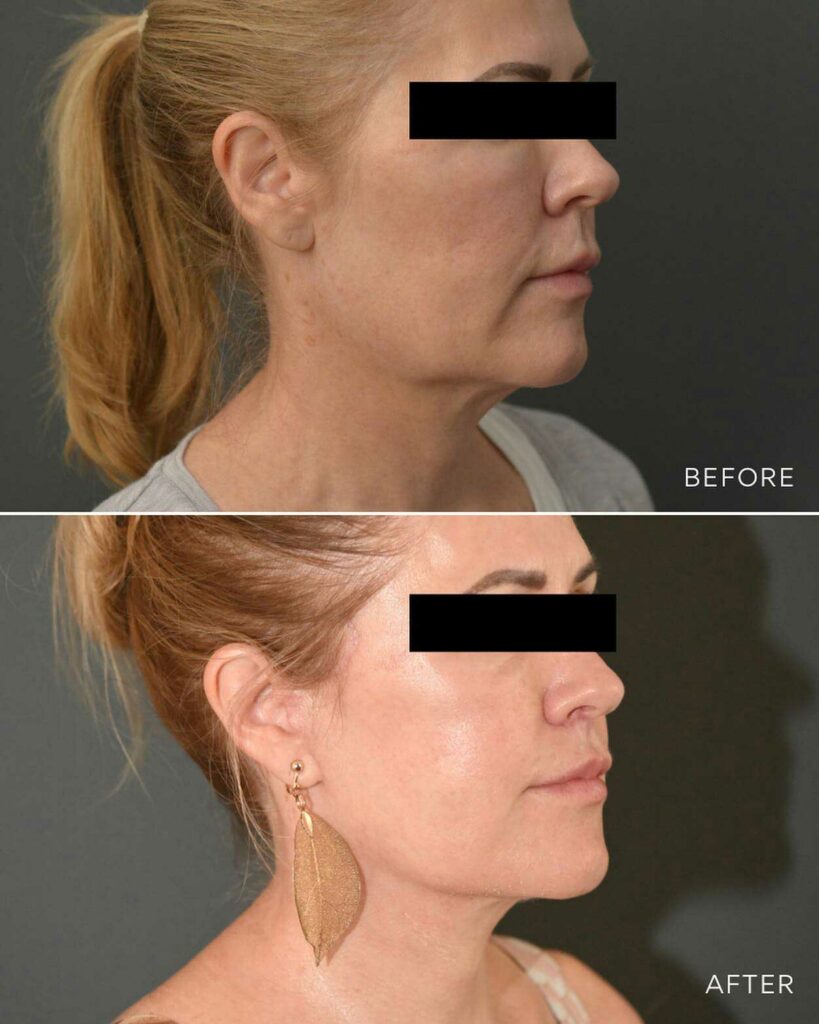2024’s Guide to Preparing for Your Facelift Surgery
Model featured in photography

If you’re preparing for facelift surgery, it’s important to understand the process, the necessary steps to take beforehand, and what to expect.
This guide from Artiste Plastic Surgery provides an overview of what to expect to help you feel prepared and informed. Before moving forward, ensure you’ve thoroughly assessed all your options and are confident in your decision.
1. Getting a GP Referral
Before scheduling your facelift surgery, it’s important to consult with your general practitioner (GP). They will assess your overall health and evaluate whether you are a suitable candidate for the procedure. Your GP referral will be required by the cosmetic surgeon to proceed with the surgery.
2. Researching Qualified Surgeons
Finding a skilled and experienced cosmetic surgeon is essential when considering facelift surgery. Take the time to research and choose a surgeon who specialises in facial procedures.
Look for certifications, qualifications, and patient reviews to ensure you’re in capable hands.However, remember no surgeon can guarantee specific results, since outcomes vary from person to person.
Factors like skin type, anatomy, and healing response are all important considerations in a facelift. Being realistic about your expectations, however, may help you feel more confident and informed.
3. Consultation with the Surgeon
Once you have selected a surgeon, schedule a consultation to discuss your expectations, concerns, and desired outcome.
During this appointment, the surgeon will evaluate your facial structure, skin condition, and discuss the surgical techniques that will be used. This is also an opportunity to ask any questions you may have about the procedure.
4. Preparing for the Surgery
In the weeks leading up to your facelift surgery, there are several steps you can take to ensure a smooth procedure and recovery:
- Follow any pre-operative instructions provided by your surgeon, such as avoiding certain medications or supplements.
- Stop smoking and limit alcohol consumption, as these can interfere with the healing process.
- Arrange for someone to accompany you on the day of surgery and assist with transportation afterward.
- Stock up on necessary supplies, such as pain medication, cold compresses, and soft foods.
Disclaimer: This information is not meant to be followed to the letter but serves as general guidance. Always rely on the specific instructions provided by your surgeon, and if you’re unsure about any preparation steps, ask your surgeon directly.
5. Post-Surgery Care
After your facelift surgery, proper post-operative care is crucial for optimal healing and results. Some tips to follow during your recovery period include:
- Follow your surgeon’s instructions regarding medication, wound care, and activity restrictions.
- Keep your head elevated to reduce swelling and bruising.
- Avoid strenuous activities and exercise for the recommended period.
- Attend all follow-up appointments with your surgeon for evaluation and guidance.
Each individual’s recovery process may vary, so it’s important to be patient and allow yourself time to heal fully. Your surgeon should ultimately be your source of answers prior to and right after the procedure.
Start Your Planning Today
If you’re exploring facelift surgery, the crucialness of carefully planning and consulting a qualified professional cannot be emphasised enough.
At Artiste Plastic Surgery, Dr. Jack Zoumaras, a board-certified Specialist Plastic Surgeon, is available to answer your questions and provide personalised guidance to discuss whether to consider this invasive procedure.
Remember, a Body Dysmorphic Disorder (BDD) screening will be part of your consultation to ensure that the decision is right for your mental well-being. This decision helps identify if expectations and realistic, and supports informed, healthy choices.
Reach out to arrange a consultation, if you’re ready, and determine whether a facelift aligns with the changes you desire.
Disclaimer: At Artiste Plastic Surgery, our Plastic Surgeons led by Dr Jack Zoumaras have been trained to the highest possible degree. All surgery has risks and it is always advised to get a second opinion. Risks are very real and we cannot guarantee any result. Results are illustrated as a guide only. All risks are managed and any need for revision surgery or complications (1-5%) can be managed by our specialist plastic surgeons.
Any statements on how you will feel is based on Level V Evidence:
Level V: How you will feel after plastic surgery varies between individuals, depending on psychological and physical factors. Our internal research is based on how patients in our practice feel after surgery.
The blogs are not a substitute for a medical consultation and do not form as part of the doctor to patient relationship.
SHARE THIS ARTICLE
Sep25
Rhinoplasty Recovery Timeline: What to Expect Week by Week
Disclaimer: At Artiste Plastic Surgery, our Plastic Surgeons led by Dr Jack Zoumaras have been trained to the highest possible degree. All surgery has risks and it is always advised ...
Sep25
Are Non-Surgical Nose Jobs Worth It?
Are Non-Surgical Nose Jobs Worth it? Pros, Cons & Alternatives Are Non-Surgical Nose Jobs Worth it? Pros, Cons & Alternatives Are Non-Surgical Nose Jobs Worth it? Pros, Cons & Alternatives ...
ABOUT ARTISTE
Artiste Plastic Surgery is an Award Winning Specialist Plastic Surgery practice led by internationally trained Dr. Jack Zoumaras, Plastic Surgeon and Peer Reviewed Face Surgeon
Artiste offers the latest Cosmetic Surgical Procedures of the Face, Breast and Body, inspired from leading centres around the world.
STAY IN THE LOOP
Enter your email address below to receive updates on new articles and VIP access to promotions and special offers.
FOLLOW US ON INSTAGRAM
